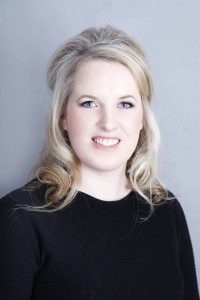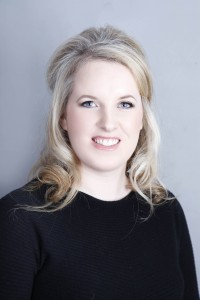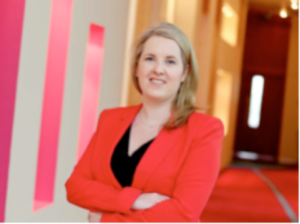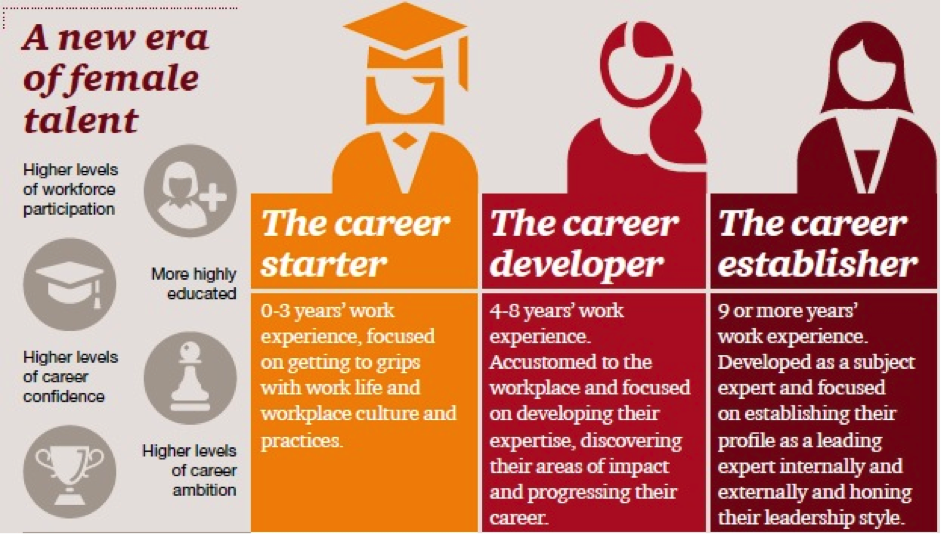 Contributed by Aoife Flood. Based in Dublin, Ireland, Aoife is Senior Manager of the Global Diversity and Inclusion Programme Office at PricewaterhouseCoopers International Limited.
Contributed by Aoife Flood. Based in Dublin, Ireland, Aoife is Senior Manager of the Global Diversity and Inclusion Programme Office at PricewaterhouseCoopers International Limited.
International Women’s Day is the perfect time to celebrate the many achievements of women, and think about what more can be done to help them achieve their career goals.
The good news: women are more confident and ambitious then ever. This is one of the findings of a new PwC report – Time to talk: what needs to change for women at work – which looks at the views of over 3,600 women around the world from employers representing 27 different industry sectors. We focused on women in the pipeline, aged 28-40, because it’s at this stage that we start to see female representation gaps widen and the challenges of combining personal and career priorities increase.
Leadership aspirations on the rise
Women are more career confident and ambitious than ever; 82% are confident in their ability to fulfil their career aspirations, 77% in their ability to lead, and 73% are actively seeking career advancement opportunities. Furthermore, they have strong leadership aspirations, with 75% of women saying it was important to them they reach the top of their chosen career, namely obtain a leadership position. Women are confident, ambitious and ready to progress.
But the survey also highlights we still have a long way to go and identifies three strategies which are essential to creating a more inclusive working environment. One of these strategies centers on the importance of strategic support, ultimately highlighting that support networks and advocacy go a long way. In a nutshell women need strategic support.
Women need strategic support to succeed
Think of this strategic support structure as a series of circles. In the middle is the individual woman: an ambitious skilled professional who needs the confidence to put herself forward to achieve her career and personal aspirations. Fundamental to this is the support she gets from the circles around her: her workplace and personal support networks.
In the workplace, she not only needs a manager who will help develop her talent and advocate on her behalf, but a series of informal and formal support people and programmes. She needs role models of both genders to look up to and learn from, mentors who help her navigate the path to success and sponsors who can push her to the next level. Personal experience has taught me just how critical sponsorship and advocacy is. The two biggest career milestones of my career, which involved me moving into new areas of the Human Capital spectrum in which I’d no previous experience, would simply not have happened without male sponsors who on each individual occasion were advocating that I was worth taking a chance on when I wasn’t in the room.
In the world outside of work, the third circle, she needs a supportive network, from parents to partner, and friends to peers, that reinforce her career ambitions and work life decisions. For example, women might need to enlist family members and other people to take on more home life or caregiving responsibilities in order to allow her to be successful at work. Interestingly, 84% of the women in our survey in a relationship identified as being part of a dual-career couple and 80% of the women in the survey said they have support from their family and/or partner in their career ambitions.
Self-advocacy pays off
Traditionally, women have been uncomfortable with self-promotion. Our research shows that when presented with a promotion opportunity, women are much more likely to expect to get a tap on the shoulder from their employer; expecting their hard work to be recognised as a symbol of their ambition to progress. They are also hesitant to put themselves forward where they feel they don’t meet all the job criteria for the role.
On the other-side of the spectrum, however, the good news is that women are definitely being more proactive in pursuing their career goals. They are more actively negotiating for and seeking out the experiences seen as critical to advancing their career such as high-visibility projects and stretch-assignments. And our survey showed it is working – there is a strong positive correlation that the women who negotiate are getting what they ask for.
Women won’t succeed without formal and informal support networks. In the workplace, the critical issue is finding the right mix of push and pull to help women simultaneously realise their personal and professional ambitions. And in their personal life, women need to discuss balancing their career and personal ambitious and asking for the help and support they need to achieve these.
Women are more confident and ambitious than ever before, but they need to be able to self-advocate and vocalise where they want to go. This blend of workplace and personal relationships and support is critical to supporting and reinforcing a woman’s self-belief and catalysing their self-advocacy.
My advice to women this International Women’s Day is:
1. Think about what you can do to solicit greater levels of strategic support.
2. Reframe the action of ‘self-promotion’, which has negative connotations for many women, as self-advocacy.
3. This month, put your hand up for a stretch assignment you may be hesitant about, say yes to something you are not sure you are ready for, or schedule time with your boss to make your career aspirations known. Realise the power of self-advocacy and relish the results.
I know it certainly has worked for me. I wouldn’t have been involved in leading this research publication if I didn’t put my hand up four years ago to lead PwC’s first global diversity thought leadership project, something I had never done before. That decision four years ago has led to me being involved in some of my most enjoyable and career developing work, in addition to raising my profile both within and beyond PwC.
Find out more about the importance of strategic support in PwC’s Time to talk: What has to change for women at work publication: www.pwc.com/timetotalk
Follow Aoife Flood at @aoiferflood.



 Sunday 8 March 2015 marks this year’s
Sunday 8 March 2015 marks this year’s 
